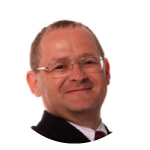The Great Potential of Regenerative Medicine
/ Excerpted from a recent conversation with Dr. Alan Russell, Highmark Distinguished Career Professor at Carnegie Mellon and former Founding Director of the McGowan Institute for Regenerative Medicine at the University of Pittsburgh.
Excerpted from a recent conversation with Dr. Alan Russell, Highmark Distinguished Career Professor at Carnegie Mellon and former Founding Director of the McGowan Institute for Regenerative Medicine at the University of Pittsburgh.
_____
Methuselah Foundation: In your opinion, what are the most significant barriers to progress in organ bioengineering right now?
Alan Russell: That’s a bit like asking me “how long is a piece of string?” It’s a huge, unending discussion. A new textbook just hit the market on regenerative medicine, and it’s about 2,000 pages of answers to the question you just posed. In very broad strokes, I think it’s a mixture of money issues, business issues, and scientific barriers that for years have gotten in the way of the broad application of organ engineering to successfully replace transplantable organs.
MF: We’ve recently been exploring the idea of creating a kind of “moonshot” document for organ engineering and regeneration in order to build greater alignment and fuel collaboration among various researchers, institutions, funders, etc. Is this something that you think would be useful to pursue?
Russell: A lot of people have tried similar things. There have been government-led initiatives all over the world to try and create helpful collaboration between groups. The AFIRM program (Armed Forces Institute of Regenerative Medicine), for example, is one that has included a whole organ approach. The founding documents of the California Institute for Regenerative Medicine seemed to play a role in helping secure its $3 billion public investment. There’s also a document out calling for a Federal Initiative in Regenerative Medicine that’s been reasonably impactful.
I hope I’m not jaded by history, but I’ve personally been involved in so many of those kinds of initiatives and discussions, and very rarely does anything of any substance or utility really come out of it. For the most part, these are all just collections of people that say they’re going to work together in order to generate research money, and they don’t necessarily really work together.
There is one recent, very substantive effort led by David Williams that I could point to. It took place in China last year, and it was really focused on the grand challenges of regenerative medicine. I think the document that came out of it was going to be published in The Lancet.
MF: You mean the Xi’an Papers?
Russell: Yes. That document does everything you’re talking about. But the real question to answer is, did anyone read it? Did anyone change their behavior as a result of reading it?
MF: That’s a good question. I don’t know, but I agree that it’s a good model for what we’re envisioning. Let’s switch gears now and talk about your own work. What do you personally believe are the most promising pathways forward for regenerative medicine?
Russell: I’m a great believer in whole organ engineering, meaning decellularization and recellularization. But if I’m really honest, do I think that it will provide clinical relevance? I think probably not. I see it a little bit like I see embryonic stem cell research. It’s going to teach us a huge amount about how to use cells and stem cells in vivo, but perhaps they themselves won’t be used clinically to a great extent. So I don’t know that decellularization-recellularization is the path to go.
My personal favorite of all of the different approaches is actually called “ectopic organogenesis.” This is the approach that was promulgated by Eric Lagasse, who discovered that you could repopulate lymphatic tissue with different kinds of cells, and through doing that, encourage the transformation of a lymph node into a miniature organ of different kinds. I think this work has much more clinical potential.
MF: What would you say is the single most important thing for people unfamiliar with regenerative medicine to know or appreciate about the field?
Russell: When I talk to the public, I always express it like this: When you go to the doctor and you hear certain words, it can raise great fear. Some words, words like “diabetes” or “Parkinson’s” or “Alzheimer’s,” are very alarming to hear. And there are other words that aren’t—words like “sore throat.” If you went to the physician 100 years ago and they said, “Hey, you have pneumonia,” you would have been scared, because you’d be dead. Then science came along and made those words less fearsome. So I think the great potential for regenerative medicine is that it represents a set of tools that will allow what we currently think of as debilitating, terrible diseases to be less scary. That’s exciting because it’s something that our grandchildren are likely to benefit from. In other words, by the time people being born today are old enough to have to face some of the challenges that you and I might face, these tools will be ready to help them.
MF: That’s great. How about for people within the regenerative medicine community? What’s the most important thing you’d like your peers and colleagues to better understand or appreciate?
Russell: I’ve said this one a thousand times: the need for standardization. Typically, everybody works in their own little way, with their own model, and a lot of the work is unfortunately very hard to reproduce. If you look at industries that have innovated rapidly and successfully penetrated their markets, whether it’s PCs or mobile phones or even the automobile industry, they’ve often been able to do that because different competitors decided to come together and agree to a common set of standards. In our field, we haven’t done that.
_____
Visit us at mfoundation.org.


